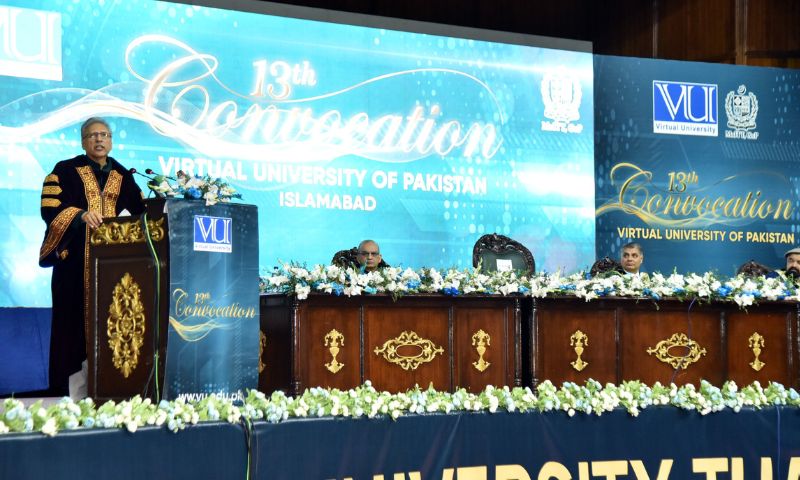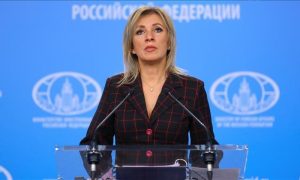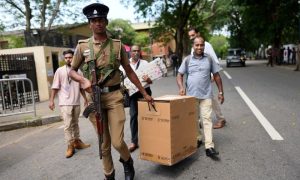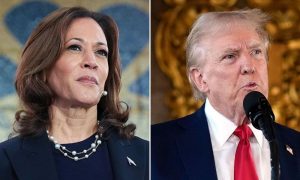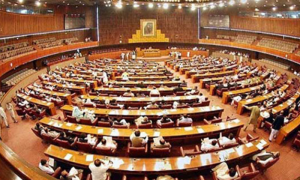ISLAMABAD: Pakistan’s President, Dr. Arif Alvi, on Tuesday emphasized that every university should start virtual education to promote higher and skilled-based education across the country.
Addressing the 13th convocation of Virtual University, he said that keeping in mind the evolving technology trends, the Higher Education Commission (HEC) had also devised a policy that was still waiting for final approval, under which all universities would be allowed to impart 30 percent virtual education to its students.

The president said that international educational institutions were rapidly shifting from the traditional brick-and-mortar university system to the virtual education system.
In the US, he said, more than 50 percent of the courses in every university were now virtual, and they were also improving quality.
President Alvi said that he had always been a proponent of online education and had been emphasizing that online education should be promoted to disseminate knowledge in remote areas of Pakistan.
He said the reason behind less development in most of the Muslim nations was that there was still resistance to adopting the new technology.
The change will be possible only after ensuring timely adoption of the latest technology, he said.
Education in Regional Countries
Giving the regional statistics, President Alvi said in Pakistan only 10 percent of students managed to enroll in higher degrees, while in Bangladesh, India, and Sri Lanka, the ratio was at least 25 percent.
He regretted that nearly 28 million children were out of school in the country. However, in the regional countries, there was almost 100 percent enrollment in primary classes.
President Alvi further said that the reason behind the low literacy rate in Pakistan was the lack of leadership and lack of preparedness. Moreover, he said the role of every individual was also crucial in this regard.
He said that when he became the president, the total annual enrollment in the virtual university was twenty-eight thousand, which had increased to 55000 this year, which was quite encouraging.
He pointed out that the university was running totally on its own resources, and it was not seeking any financial support from the government.









